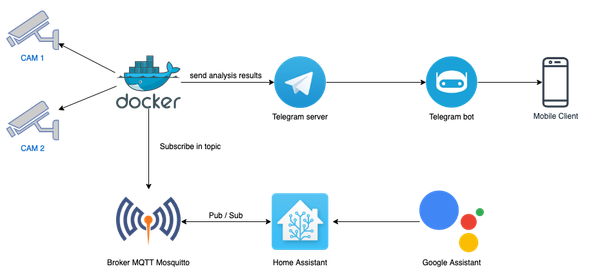Medical Malpractice and Medical Software Security, and Finding a Legal Help.
Table of Content
What is a PHI or Protected Health Information?
PHI stands for Protected Health Information. It refers to any individually identifiable health information that is created or received by a healthcare provider, health plan, public health authority, or healthcare clearinghouse.
This information includes demographic data, medical history, test results, insurance information, and other data that can be used to identify an individual and is related to their past, present, or future physical or mental health.
Medical Data Leaks in the USA!
Here are some statistics and news about medical data leaks in the USA:
- According to a report by Protenus, a healthcare compliance analytics company, there were 572 healthcare data breaches reported in the United States in 2019 alone, resulting in the exposure of over 41 million patient records[^1^].
- In 2020, the healthcare sector experienced a significant increase in data breaches, with a 55.1% year-over-year increase in reported breaches[^2^]. This highlights the growing concern surrounding the security of medical data.
- One notable example of a medical data breach occurred in 2015 when Anthem, one of the largest health insurance companies in the US, suffered a cyber-attack that resulted in the exposure of approximately 78.8 million patient records[^3^]. This breach raised awareness about the vulnerability of medical data and the need for stronger security measures.
- In 2021, the Department of Health and Human Services' Office for Civil Rights (OCR) settled a case with Banner Health for $200,000 following a 2016 data breach that affected over 2.9 million individuals[^4^]. This settlement demonstrates the consequences that healthcare organizations may face for failing to adequately protect patient data.
Hy Healthcare Service Providers Are Obligated to Protect Patients Data?
Healthcare service providers have a legal and ethical obligation to protect user information, including PHI, for several reasons:
1- Patient Privacy
Protecting user information ensures that patients' privacy rights are respected. Patients have the right to control their healthcare information and to know who has access to it.
2- Trust and Confidentiality
Patients trust healthcare service providers to keep their personal and sensitive information confidential. Maintaining the confidentiality of user information helps to build and maintain trust between patients and healthcare providers.
3- Legal and Regulatory Compliance
Healthcare providers are required to comply with various laws and regulations, such as the Health Insurance Portability and Accountability Act (HIPAA) in the United States.
These regulations mandate the protection of user information, including PHI, and failure to comply can result in legal consequences.
4- Preventing Unauthorized Access and Misuse
Protecting user information helps prevent unauthorized access, data breaches, and identity theft. It reduces the risk of sensitive information being used for fraudulent activities and ensures that patient data is only accessed by authorized individuals for legitimate purposes.
Overall, healthcare service providers should prioritize the protection of user information, including PHI, to uphold patient privacy, maintain trust, comply with legal obligations, and prevent unauthorized access and misuse of sensitive data.
Is PHI (Protected Health Information) leak is a medical malpractice?
A PHI (Protected Health Information) information leak can be considered a form of medical malpractice if it occurs due to the failure of healthcare professionals or organizations to adequately protect patient data.
The unauthorized disclosure of PHI can lead to serious harm or injury to patients, such as identity theft or compromised medical treatments.
If you suspect that a PHI information leak has occurred and it has resulted in harm or injury, it is important to consult with a medical malpractice attorney to discuss your specific situation and determine the appropriate legal actions to take.
What is a Medical malpractice?
Medical malpractice refers to instances when healthcare professionals, such as doctors or nurses, fail to provide the standard of care expected in their field, leading to harm or injury to patients.
In today's digital age, medical software security has become a crucial aspect of ensuring patient safety and protecting sensitive medical information.
Threats and Issues
1- Data Breaches
Medical software systems can be vulnerable to cyber-attacks, leading to the unauthorized access and theft of patients' personal and medical information.
2- Malware and Ransomware Attacks
Malicious software can disrupt medical software systems, causing delays in patient care or even compromising patient safety.
3- Lack of System Updates
Outdated software may contain security vulnerabilities that can be exploited by cybercriminals.
Finding a Legal Help!
If you believe you or a loved one has been a victim of medical malpractice related to medical software security, it is important to seek legal assistance. Here are some steps to consider:
1- Consult with a Medical Malpractice Attorney
Find an attorney experienced in handling medical malpractice cases specifically related to software security issues.
2- Gather Evidence
Collect any relevant medical records, communication records, and documentation related to the incident.
3- File a Complaint
Your attorney will guide you through the process of filing a complaint against the responsible parties and seeking compensation for damages.
Remember, it is essential to consult with a legal professional who can provide personalized advice based on your specific situation.
Conclusion
Medical malpractice refers to healthcare professionals failing to provide the expected standard of care, while medical software security is crucial for patient safety.
Threats include data breaches, malware attacks, and lack of system updates. To seek legal help, consult a medical malpractice attorney, gather evidence, and file a complaint.
A PHI information leak can be considered medical malpractice if patient data is inadequately protected.
Healthcare providers have an obligation to protect user information, including PHI, for patient privacy, trust, legal compliance, and prevention of unauthorized access and misuse.
Resources
The statistics and examples highlight the significant impact and prevalence of medical data leaks in the USA. It underscores the importance of robust security measures and the need for healthcare organizations to prioritize the protection of patient information.
[^1^]: Protenus. (2020). Breach Barometer Annual Report: 2019, Year in Review. Retrieved from https://www.protenus.com/breach-barometer-annual-report-2019
[^2^]: HIPAA Journal. (2021). 2020 Healthcare Data Breach Report. Retrieved from https://www.hipaajournal.com/2020-healthcare-data-breach-report/
[^3^]: Vogel, L. (2015). Anthem breach puts 78.8 million at risk. CMAJ, 187(3), E78-E79. doi:10.1503/cmaj.109-4987
[^4^]: U.S. Department of Health and Human Services. (2021). Banner Health settles HHS charges for $200,000 for failure to provide timely breach notification. Retrieved from https://www.hhs.gov/about/news/2021/07/08/banner-health-settles-hhs-charges-failure-provide-timely-breach-notification.html











